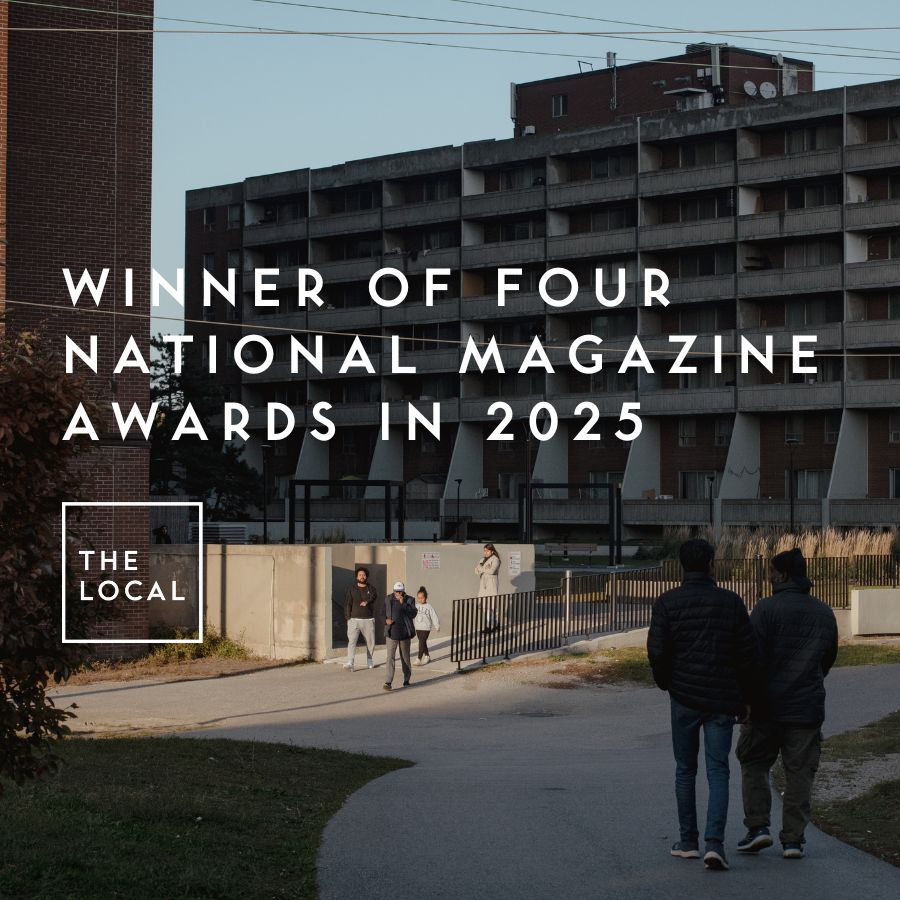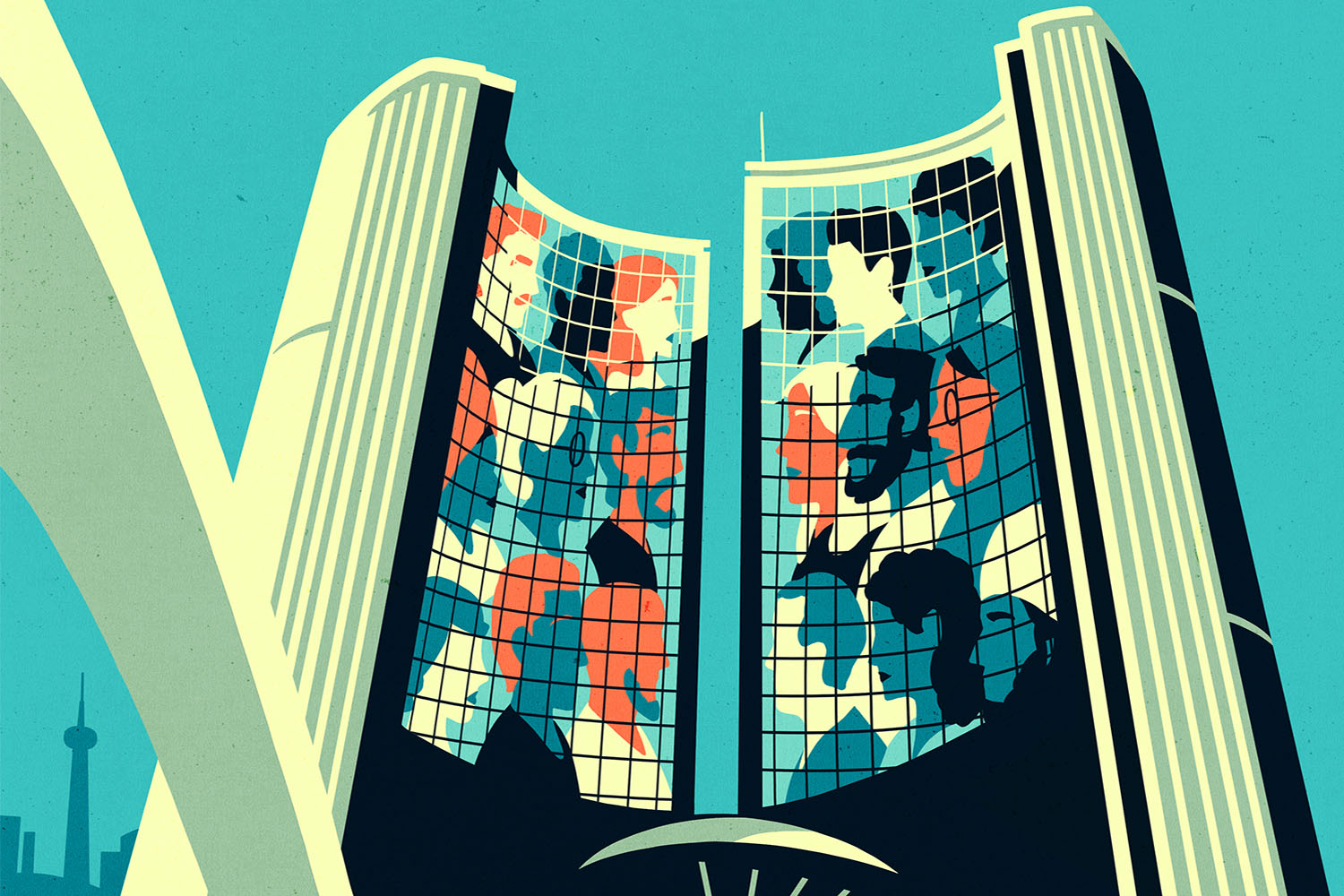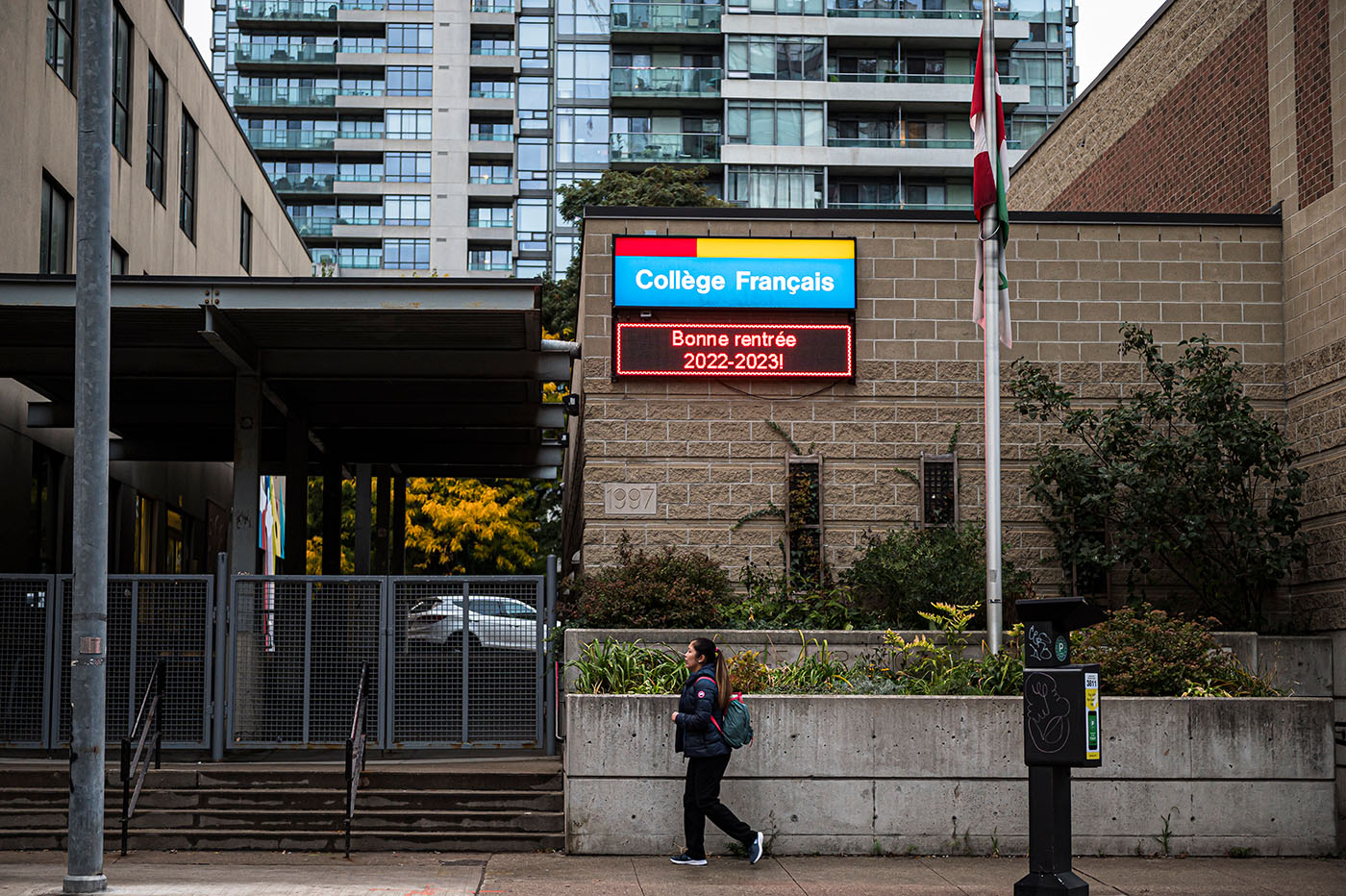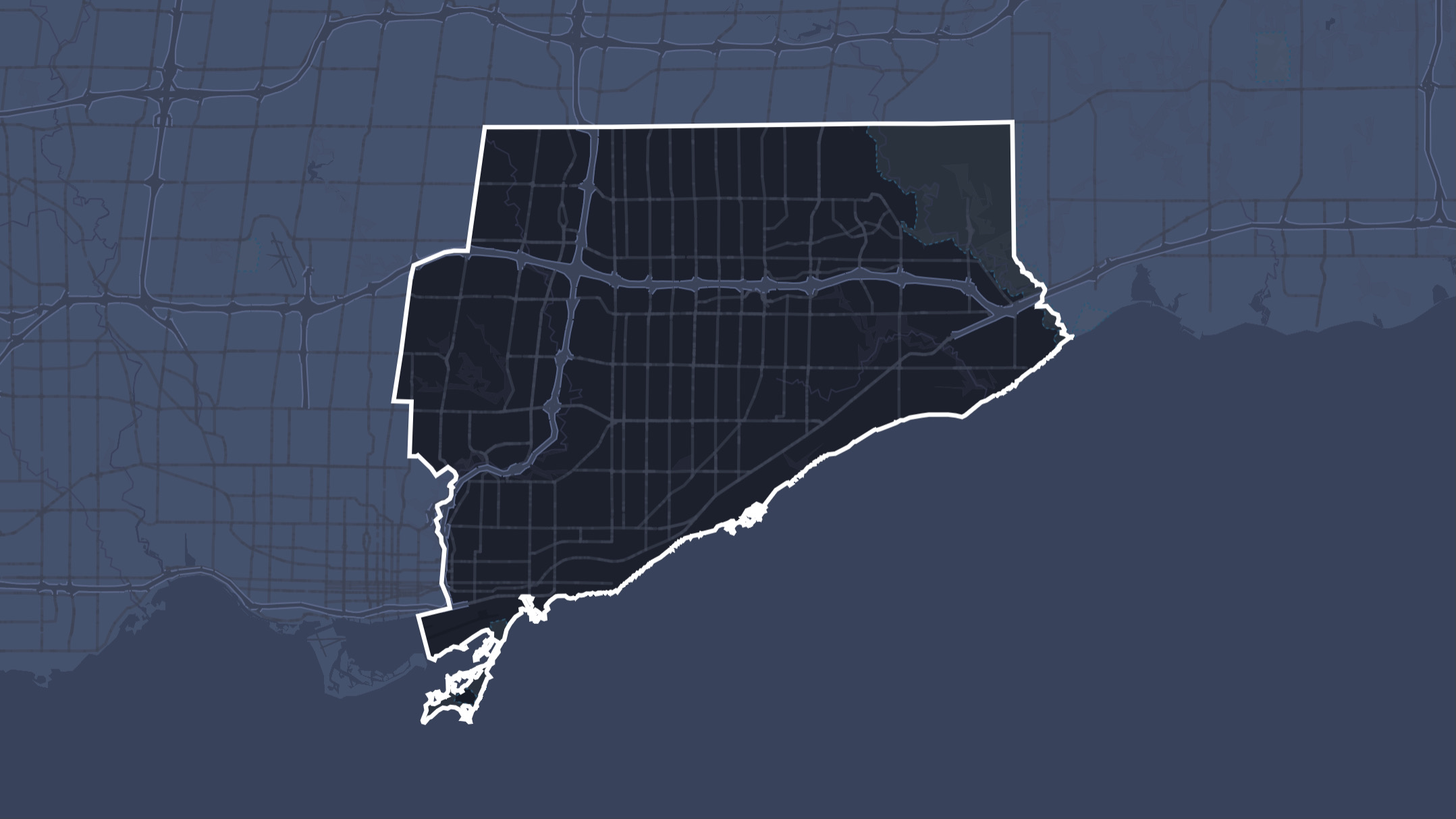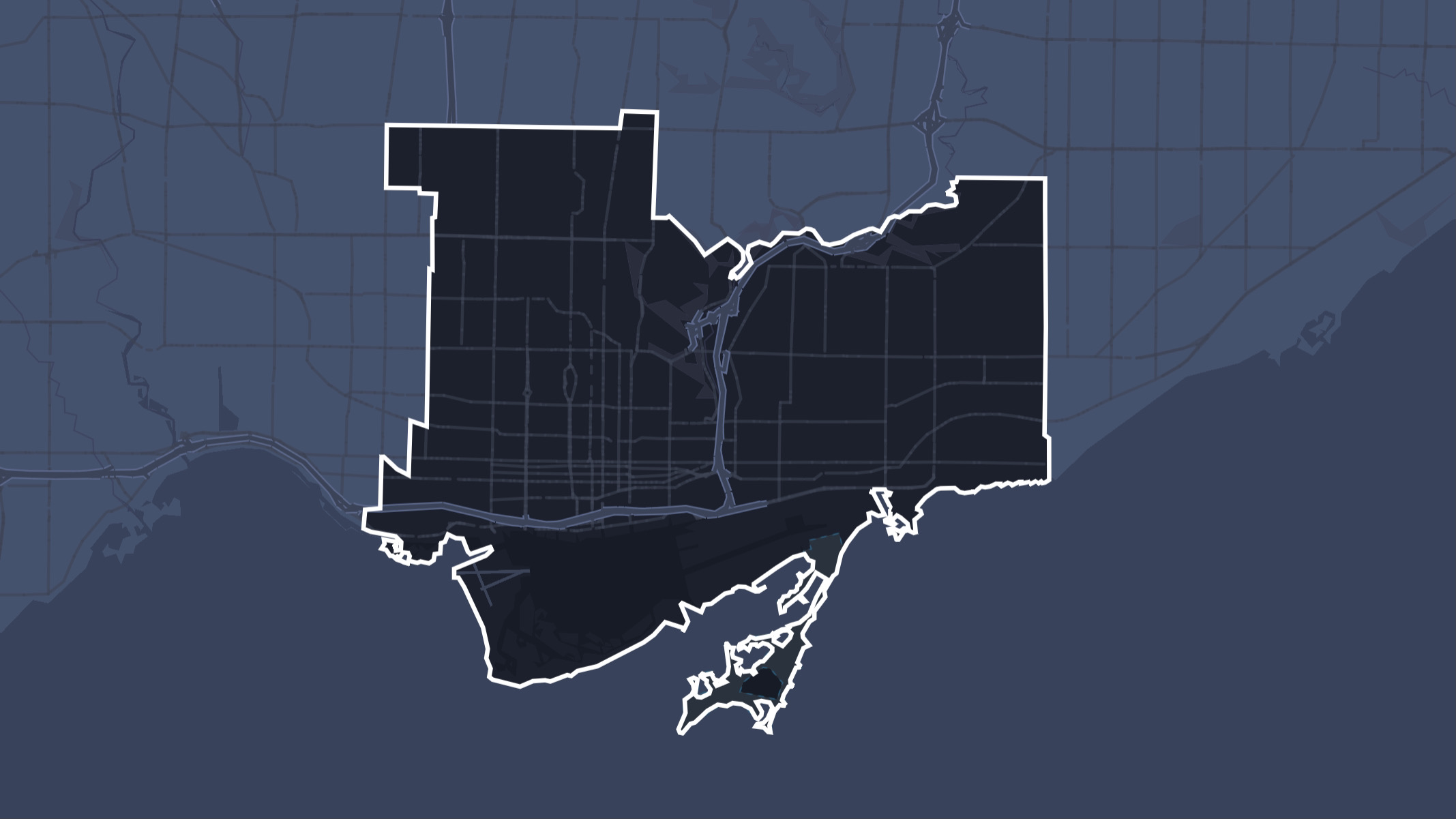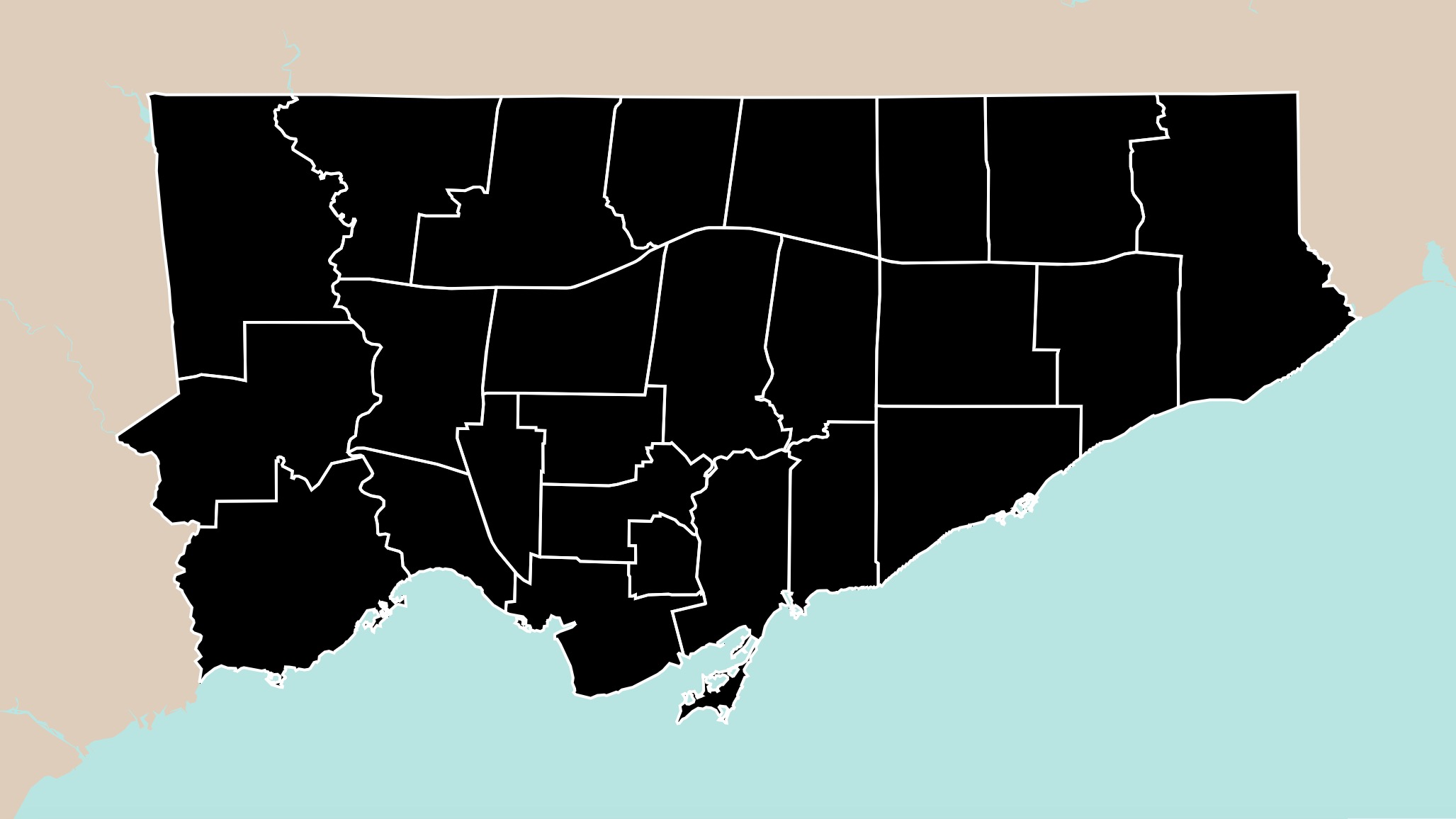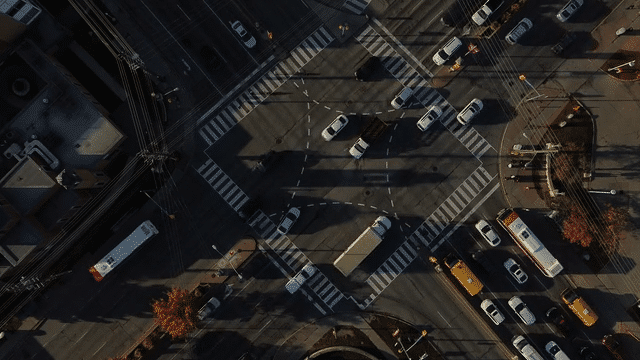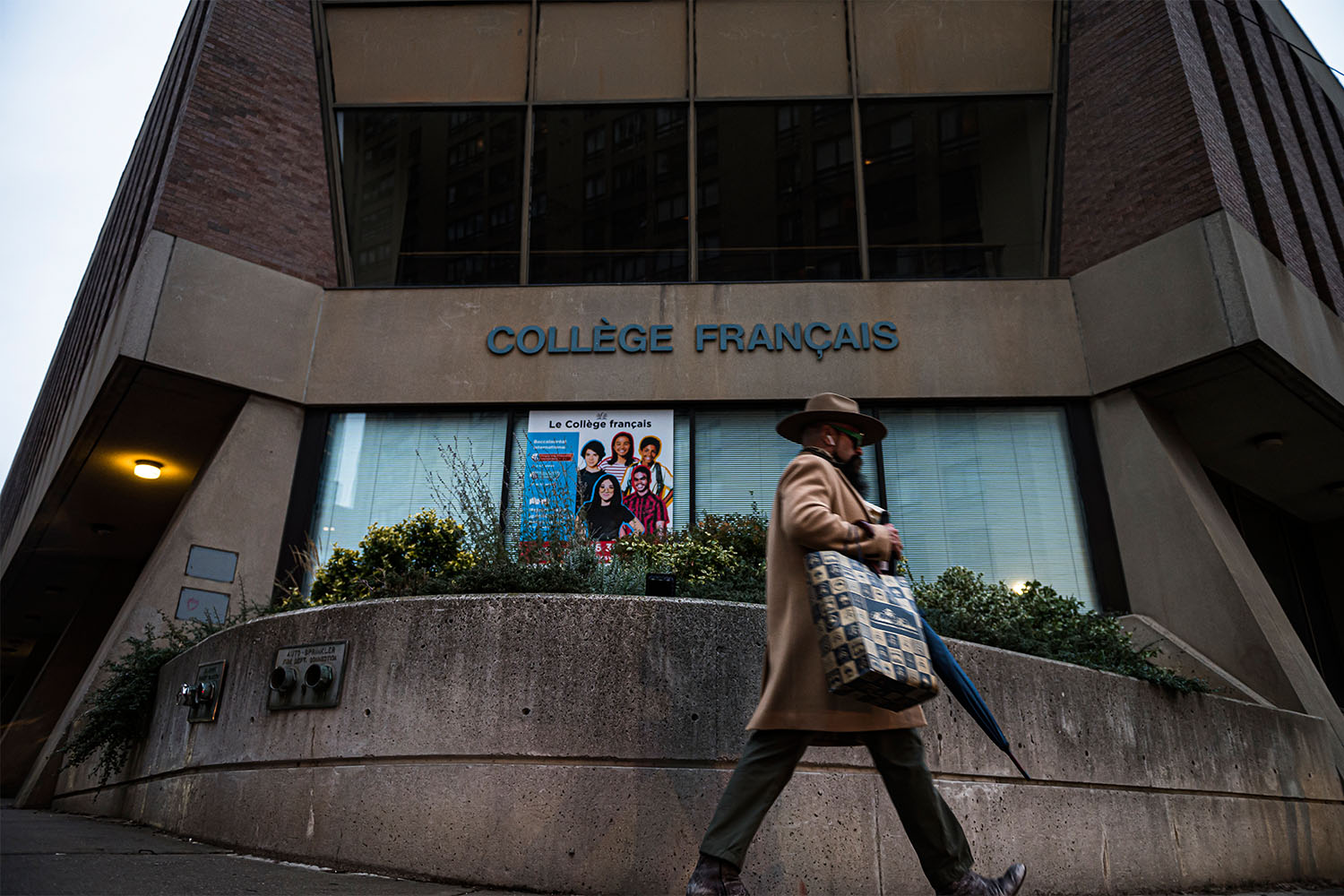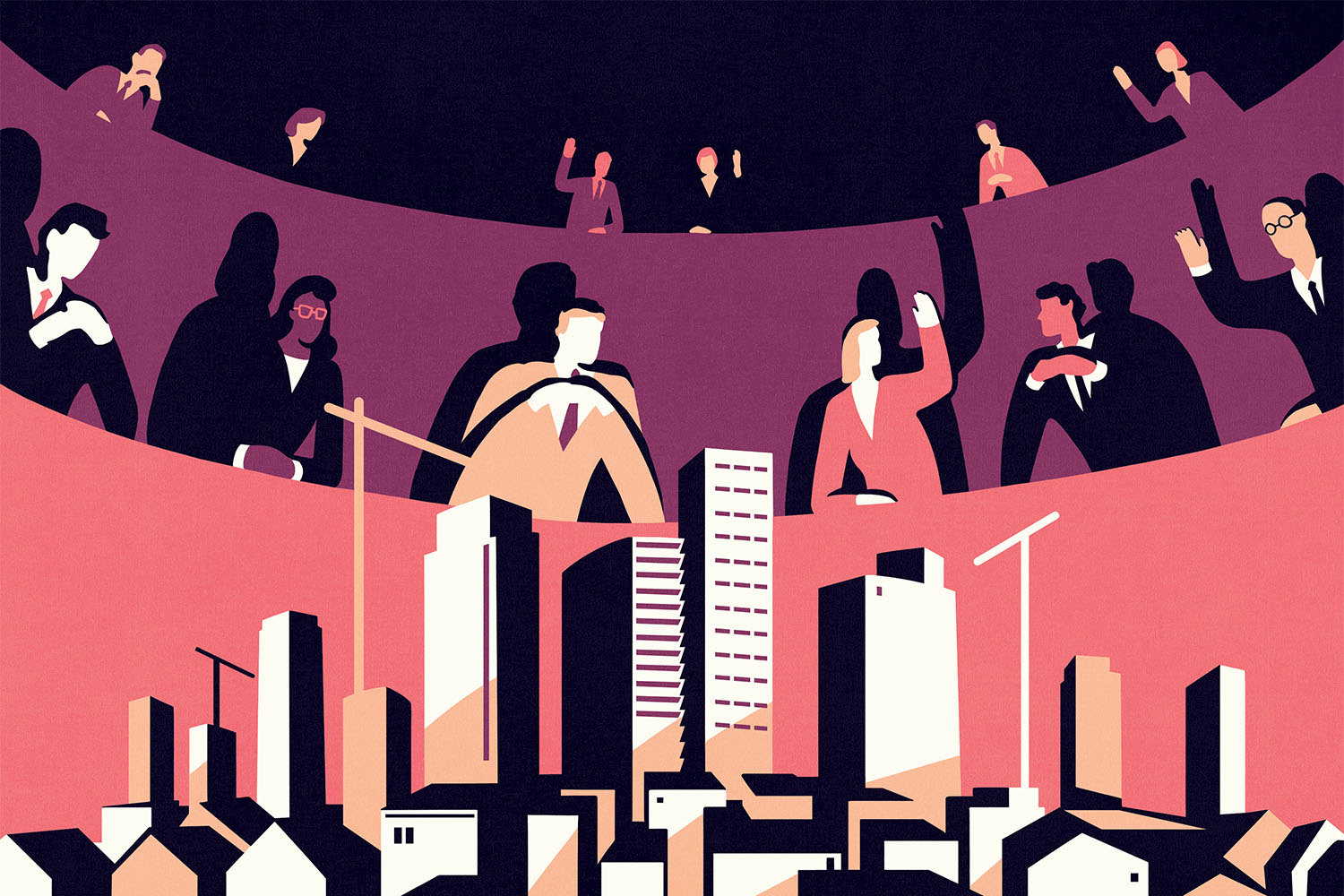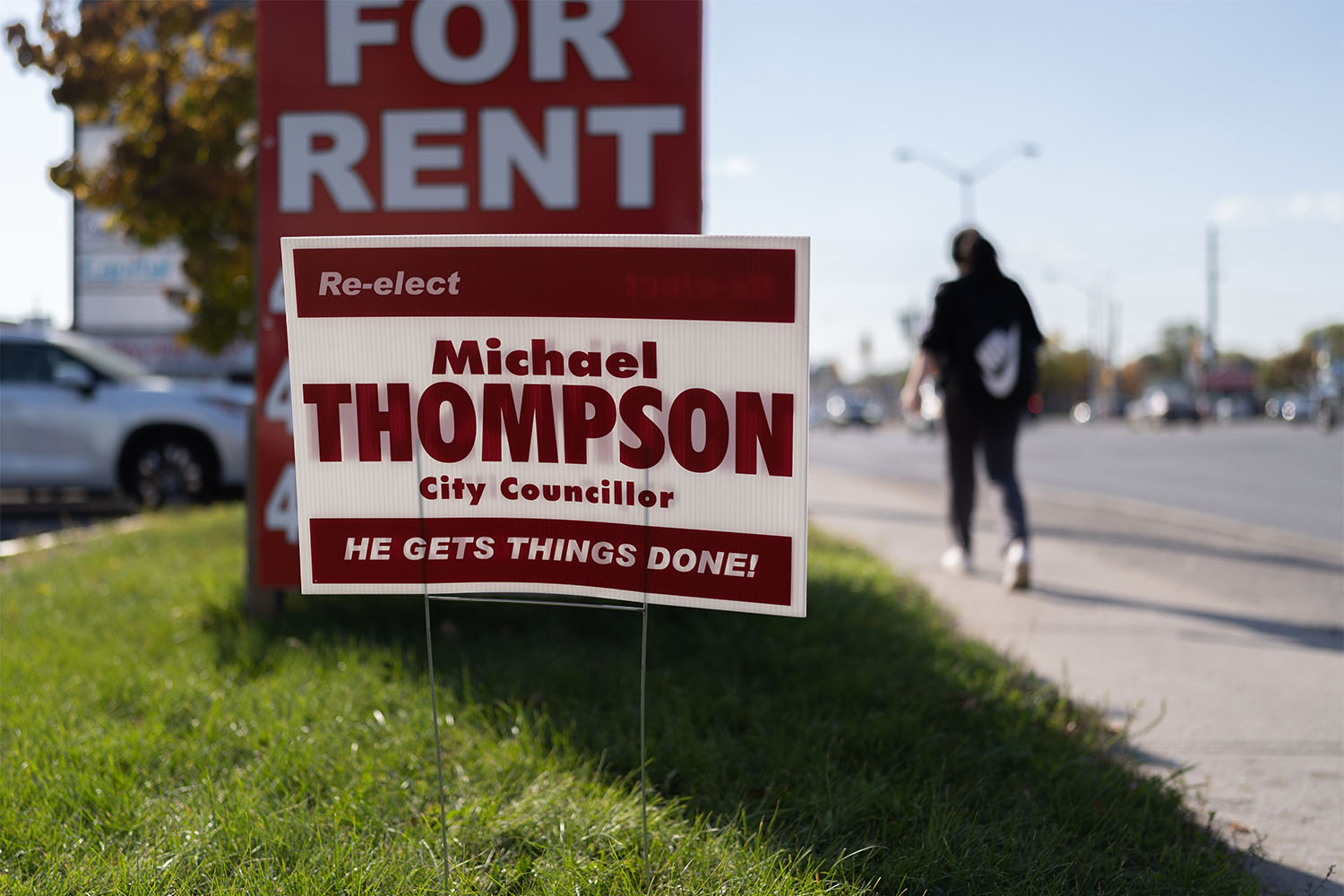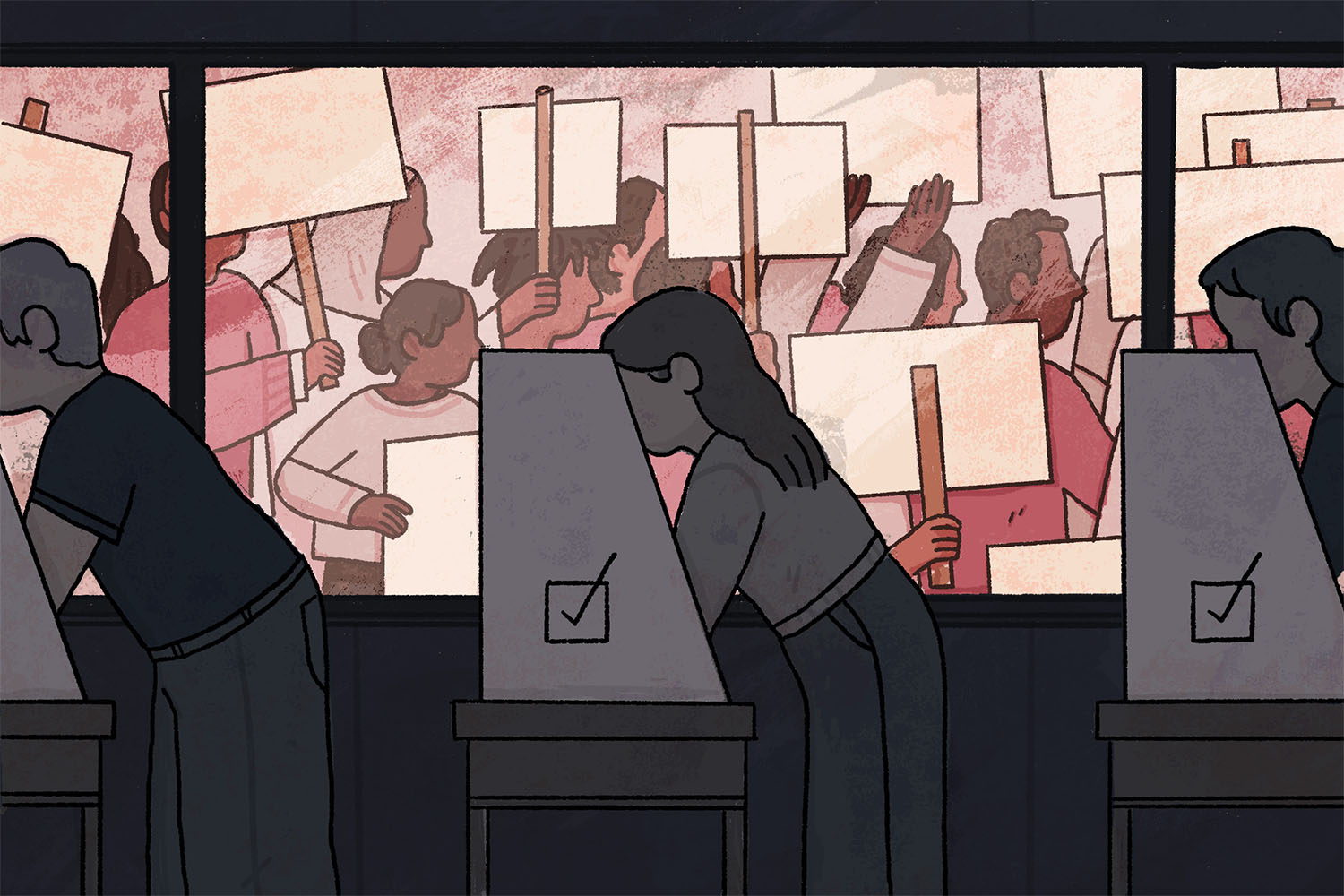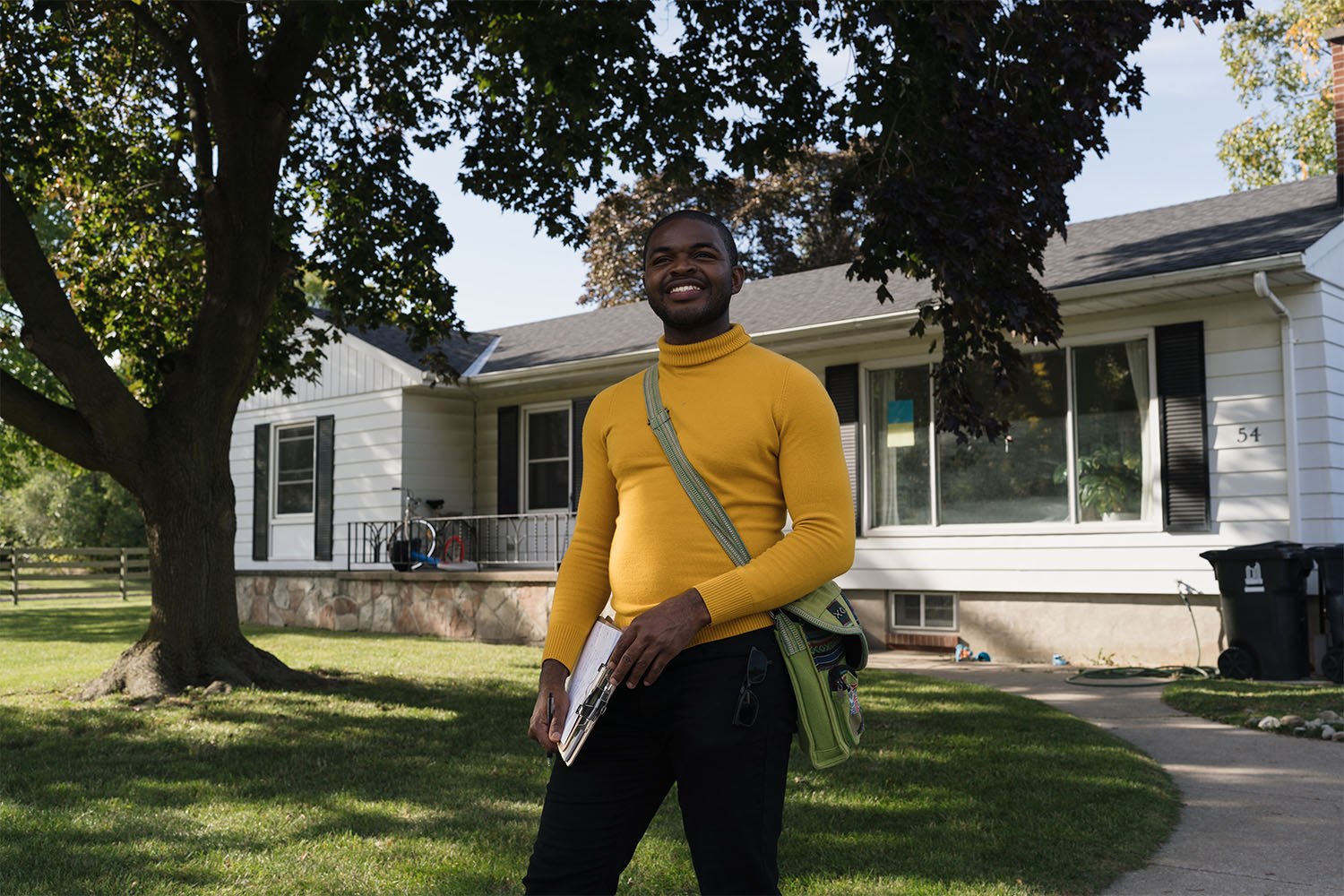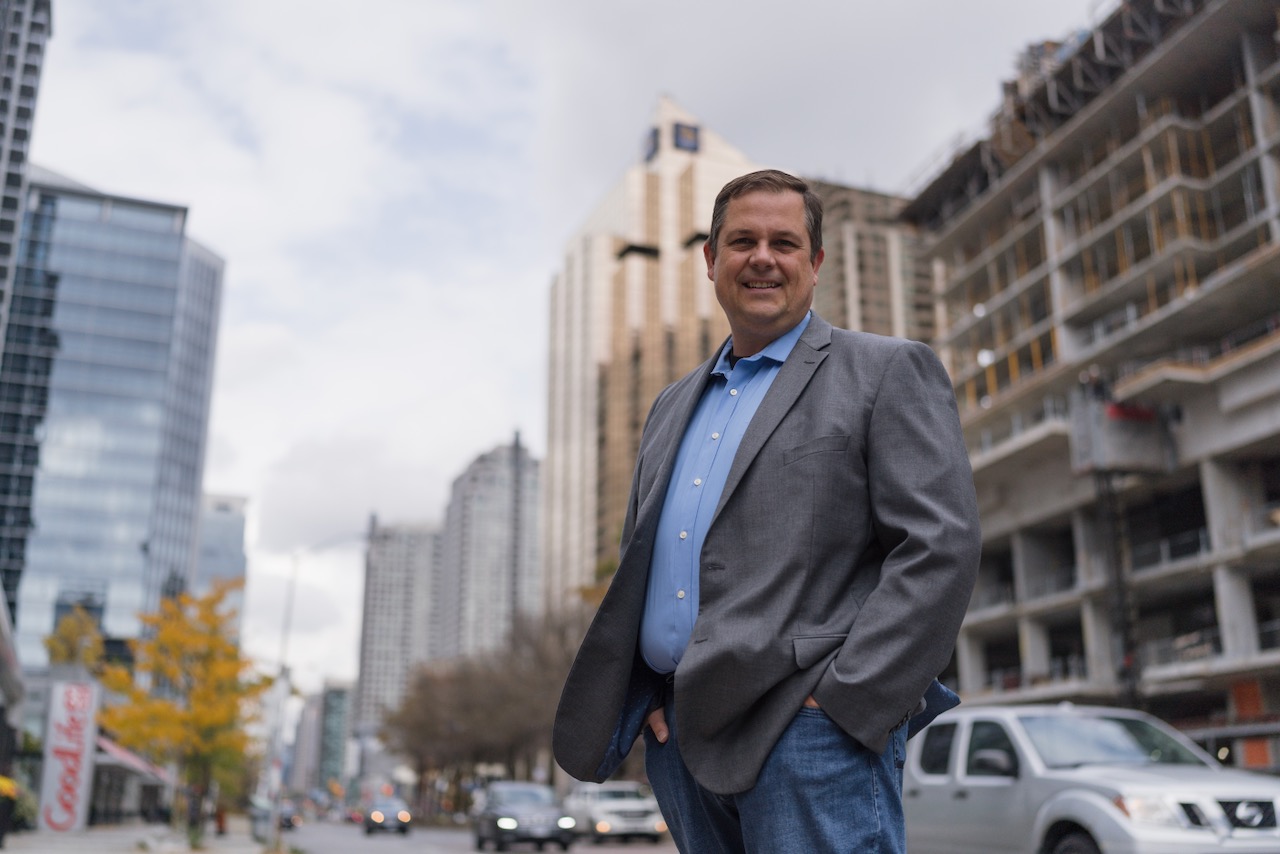
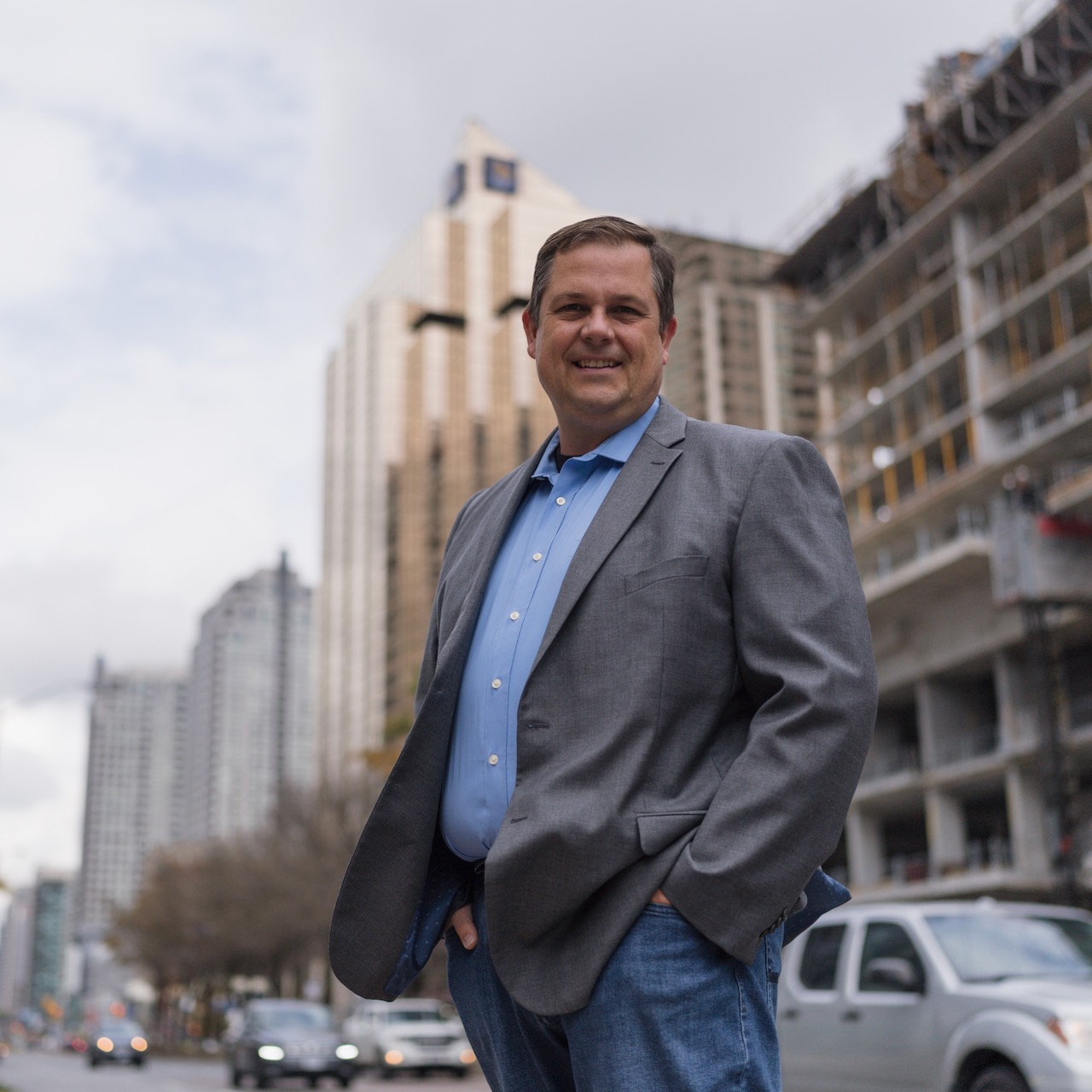
On a Sunday afternoon in August, a small group gathered on the lawn adjacent to Willowdale Manor, a seniors apartment building run by Toronto Community Housing, for the launch of Daniel Lee’s campaign for Toronto city council in Ward 18 — Willowdale.
Flanked by current city councillors James Pasternak and Gary Crawford, Lee addressed the assembly, some of whom held handwritten cards with slogans such as “Keep This Established Environment” and “Respect Democracy.” He spoke about his love for the neighbourhood. And then he spoke about his opposition to the plans for the modular housing project to be built on the grounds next door. If voted in, he said, he would respect the voices of the senior residents who oppose the plans, unlike the outgoing Ward 18 councillor John Filion, who supports the project approved by Toronto city council.
The modular housing project slated to be built at 175 Cummer Avenue, a short bus ride away from the Yonge and Finch TTC terminal station, is a three-storey building that will provide housing for individuals exiting homelessness. The 59 studio apartments are “self-contained with a twin bed, private eat-in kitchen and a bathroom,” according to the city.
The project has become one of a few key issues dividing the community. Some residents welcome the idea of supporting the less fortunate in the community. Some have serious concerns about their personal safety, claiming an increase in encounters with people living with mental health and substance abuse issues. Others acknowledge the need for the city to offer more services and initiatives aimed at vulnerable populations, but argue that the community has not been consulted adequately.
Now the project has also become a central point of contention between Daniel Lee, Markus O’Brien Fehr and Lily Cheng, the three lead candidates vying to represent Ward 18 in one of the tightest races in the city. The project isn’t the first thing they hear about door knocking; all three say that issues such as traffic safety, garbage collection, and the rise in cost of living are the more common, if mundane, concerns they hear as they go canvassing door to door. But in a ward and a city facing a housing crisis, the project on Cummer Avenue has come to take on symbolic significance.
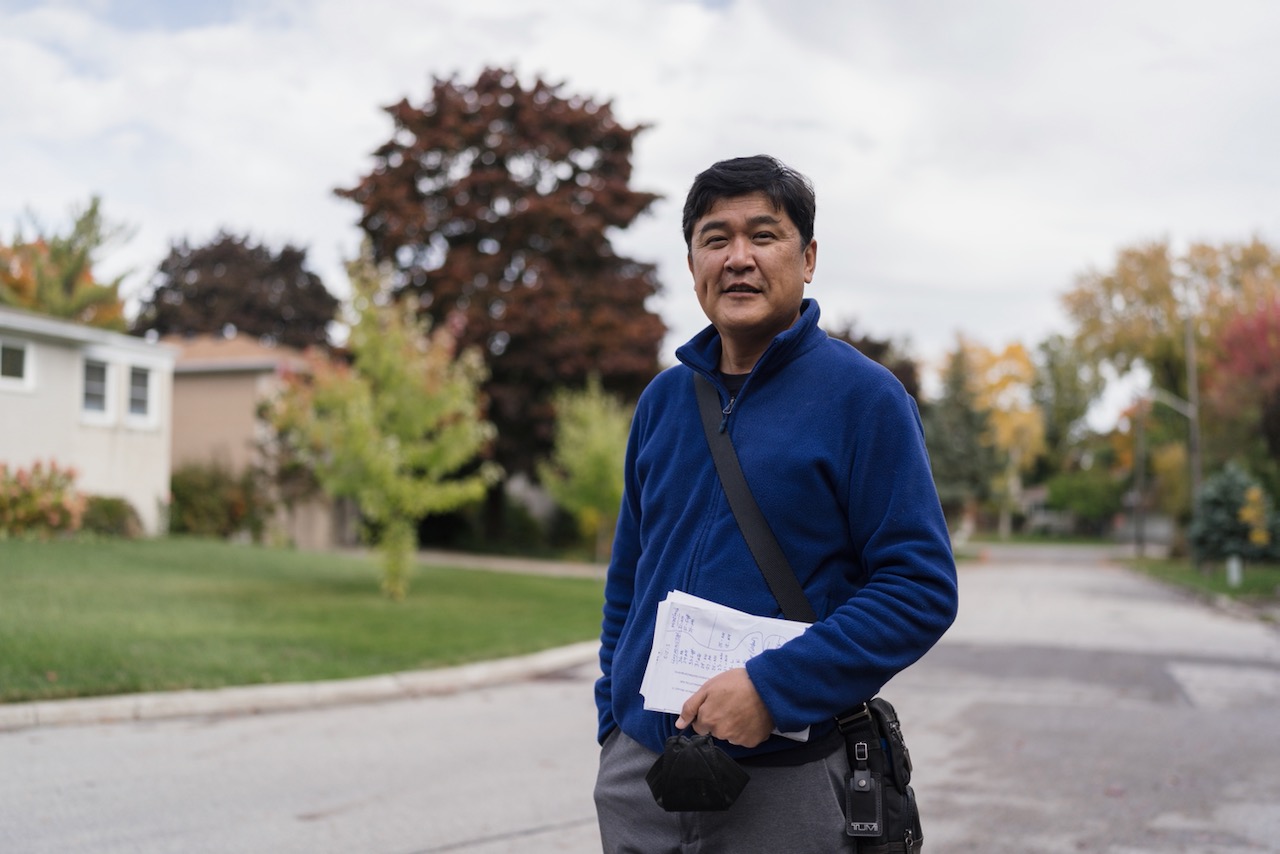
Located in the central-north end of the city, Willowdale offers residents a downtown-meets-suburbia lifestyle. Bound by Steeles and Bayview Avenues, Bathurst Street and the 401, the neighbourhood has evolved from a bedroom community into a rapidly developing part of the city, with condos springing up along the Yonge Street corridor over the past decade, bringing a bustling downtown vibe to those blocks. Housing options in this mixed-use ward range widely—from multi-million dollar mansions mushrooming up in leafy neighbourhoods, to post-war bungalows and older apartment buildings withstanding the winds of gentrification, to a steady increase in homes that have become de facto illegal rooming houses, often accommodating international students.
In Willowdale, then, affordable housing is a hot-button issue in an extremely close race to replace an outgoing representative—veteran city councillor John Filion, who has held an elected position for four decades, and announced his retirement from municipal politics this year.
This is Filion’s second retirement announcement. In 2018, when he first decided to leave politics, Filion endorsed both O’Brien Fehr, his former chief of staff, and Cheng in their races in neighbouring wards, 28 and 29. After the province cut the number of Toronto wards from 47 to 25 in the middle of the election, however, Filion decided to run for leadership of the merged ward—fearing a big name provincial politician might drop into the confusion if he didn’t—and won the seat handily. Cheng came in a strong second, while O’Brien Fehr opted not to run.
This time, O’Brien Fehr is hoping the timing is right to succeed his old boss at city hall. A Willowdale resident for more than 20 years, O’Brien Fehr’s interest in politics came at an early age. “In my family, there’s always been a tradition of looking beyond yourself, and doing something a little more lasting, a little more profound,” he says.
On a Thursday evening in late August, the candidate canvassed the neighbourhood, hoping to find support. With impending rain, he decided to scupper his plans to visit the townhomes, bungalows, and mansions close to Edithvale Community Centre, and instead knocked on doors in a 14-year old condo building on Beecroft Road, parallel to Yonge Street.
Armed with sheafs of pamphlets and clipboards of sign-up sheets, O’Brien Fehr and three volunteers made their way past the concierge and entered the elevator, pressing the button for the top floor. “This is where experience comes in handy. You work with gravity,” he said, flashing a dimpled grin.
O’Brien Fehr supports the housing project on Cummer Avenue. The project is just one of many that will be built right across the city, he points out. And there will be a new city park and a community centre that will be built less than a kilometre away in the next couple of years.
“None of these things happen quickly and easily, without some active engagement from both government and neighbourhoods deciding we’re going to tackle these problems, and we’re going to solve them,” he says. But the notion that the city can just build the project in some other location is not viable, he adds. Even if there are other sites to build, “we‘re probably going to have to put marginal housing there eventually as well.”
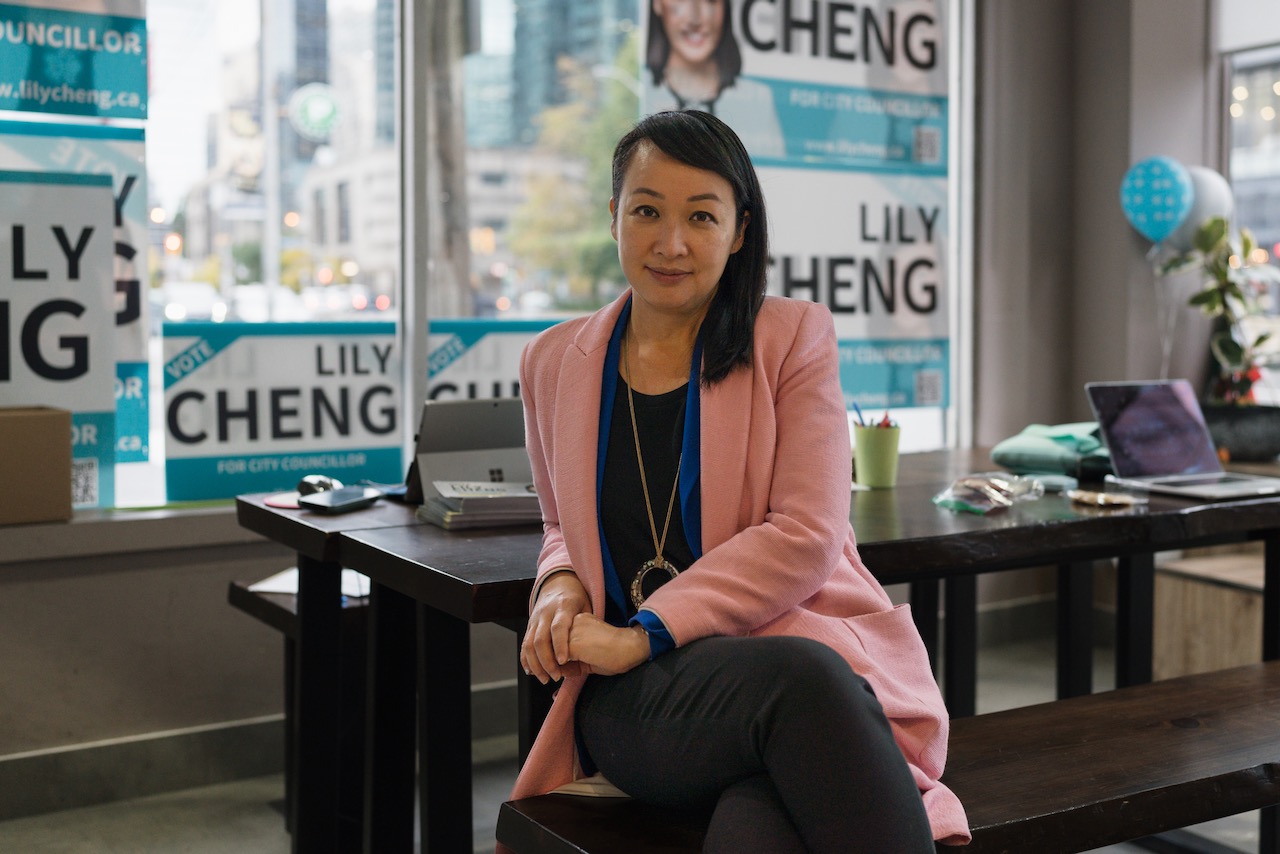
While O’Brien Fehr is positioning himself as a candidate with institutional knowledge, Cheng has been highlighting her grassroots community organizing skills during her canvassing efforts.
The late July launch event for her campaign at a popular neighbourhood bistro had a festive air, with musical performances by two recently immigrated Ukrainian teenage girls, and endorsements from local pastors, former politicians, and members of community groups such as North York Moms, the Facebook group founded by Cheng with more than 10,000 members.
At the launch, Cheng spoke about her desire for Willowdale residents to be able to come together and dream up new possibilities for their neighbourhood, while helping to build a welcoming and inclusive community where everybody felt at home. Cheng attributes her own experiences growing up as one of the few Chinese kids in Brampton as a catalyst for her community-building approach.
“I never felt like I fit in. I always felt a little bit like an outsider. I don’t want other people to feel like that. I want everyone to have a sense of belonging in whatever they do,” she says, taking a break from canvassing at another neighbourhood community event a few weeks later.
Married into Willowdale, Cheng felt isolated again as a young mother living in one of the many condos towers that have cropped up in the community over the last decade. That’s what prompted her to start a Facebook group for mothers in the neighbourhood, and eventually take on the executive director position at NeighbourLink North York, a community development organization.
When she goes knocking on doors, says Cheng, she inevitably gets drawn into conversations on a range of issues—from speeding cars and other traffic violations, to community members struggling with social isolation.
Pointing to her experience in starting a food bank in October 2021 after extensive community consultation, Cheng says she wants to tackle these larger municipal problems with a similar grassroots approach.
“I think that a lot of the problems that we need to solve—even issues like traffic—if the solution comes from the ground up, it’s more sustainable. And it will be well-received by the neighbourhood instead of what we see right now. We’re a huge city, and we’re very complex. Top down solutions are not working,” she says.
When it comes to the housing project on Cummer Avenue, Cheng says there hasn’t been enough consultation with people directly impacted by the project and she opposes it in its current form. She wants city officials to speak to the residents in-person and address their concerns, such as personal safety and destruction of the green space in their front yard.
“Many people say no one uses that green space in the front,” says Cheng. “But what do you expect? For the seniors to dance around the trees? But they are out there, by the door. I see them sitting in front of the building, looking at the trees. That’s something, right? If we invested in benches, I’m sure the seniors would be out there.”
The consultations that were held over the pandemic were online, and carried out only in English, which meant that many residents of Willowdale Manor and Cummer Lodge were unable to participate. Given that the project will likely be delayed for another year or two as the rezoning of the property has been appealed by opponents, she believes the city should also be scouting for other locations in the ward to build integrated mixed housing to address the pervasive homelessness issue.
Her own plans to address the issues of homeless and affordable housing include advocating for smaller scale supportive housing and mixed income and modular housing, as well as supporting the regulation of rooming houses.
“We need to create more different kinds of housing that are integrated, and reduce the pressure on the community to support vulnerable people,” she says. “For about seven years, I’ve been working with families who are living in subsidized housing. I see the impact when we park a whole bunch of vulnerable people together, and they’re not supported. It’s just so intense. And that intensity is hard on everyone.”
See All Ward 18 Candidates
Candidate Tracker is your go-to place for fact-checked biographies of all Ward 18 council and trustee candidates.
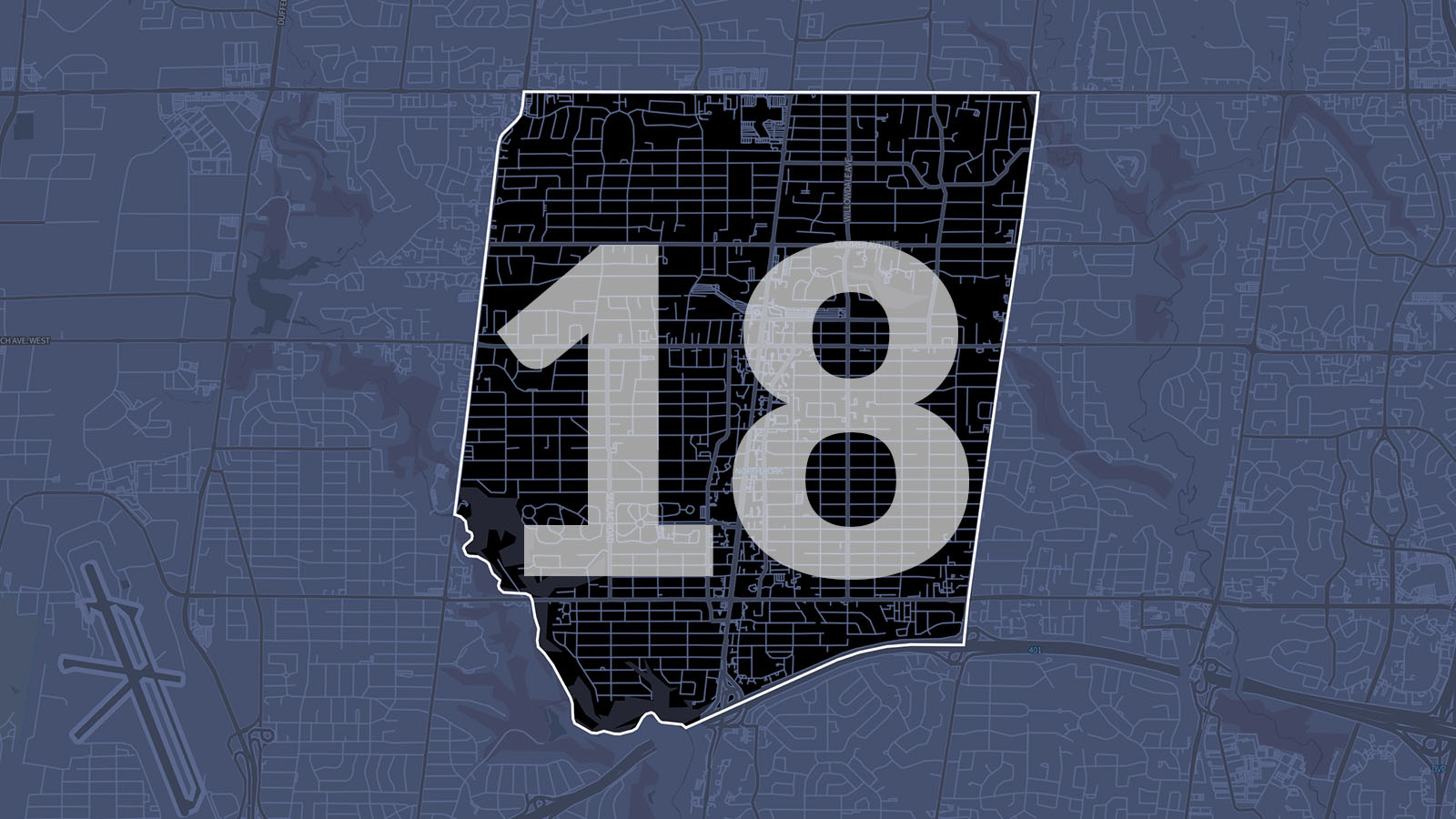
Daniel Lee says a desire to give back to the community and the country that allowed his family to succeed is what drove his decision to enter politics. Born in Korea, Lee came to Canada in 1981 by way of Argentina and speaks fluent Spanish and Korean, along with English. A pharmacist by training, he opened several pharmacies and ran a successful business for 15 years before deciding to take a dive into politics, running for the Conservatives in the 2021 federal election.
“I want to bring back the vision that Mel Lastman had for Willowdale—to make this [neighbourhood] a second downtown,” Lee says. He wants a big mall, buses coming to the neighbourhood bringing tourism. “We should be attracting businesses, so that Willowdale residents don’t have to travel downtown or Mississauga to work.”
During the speech at his campaign launch in which he urged attendees to “vote for change,” Lee spoke about his commitment to reflect the concerns of Willowdale’s community members at city hall. He pointed to his network of connections with municipal and federal politicians, and ability to build consensus in order to pass legislation that finds some kind of a middle ground.
Rather than trying to find band-aid solutions to systemic issues such as homelessness or addressing refugee needs, he says he wants to figure out strategies that work in the long-term.
“Taxpayers money, which is supposed to be used for infrastructure projects like roads, sewers and electricity, shouldn’t be used to fill in the gap for [federal] programs, like welcoming refugees,” he adds.
In August, city council approved the plan to create more than 600 new emergency shelter spaces for refugees and refugee claimants at the Novotel Hotel located near Mel Lastman Square. The move came as part of the city council’s direction to create a “refugee-specific shelter sector that operates parallel to the existing shelter system,” according to a city news release. The program includes a support system specially geared to help refugees get established and build connections in the community.
“I welcome refugees in our neighbourhood, and I want them to succeed,” says Lee, while voicing his concern that simply offering shelter space isn’t enough. He says he wants to see the North York Central Library offer refugee or immigration services, and wants there to be more support for finding jobs. “My friends who run restaurants can’t find a dishwasher… or cashier. We need to train the refugees, whether it’s in English or basic job qualifications, and have them move to our neighbourhood as taxpayers.”
Whether it has to do with the modular housing project at 175 Cummer Avenue or the emergency shelter for refugees at the Novotel, there’s a feeling of mistrust and loss of confidence among some Willowdale residents who are keeping track of these developments.
While the three candidates disagree on the way forward in each of these issues, they agree that most community members feel that they have not been adequately consulted—even as their surroundings are changing physically and demographically before their eyes.
The pandemic and the inability to hold town halls or regular in-person meetings are partly to blame, says Fehr O’Brien. As well, a lot of people don’t understand how decisions are made at city hall or the limited powers held by Toronto city council over a budget larger than some Canadian provinces. What they see are the vestiges of those decisions and their impact on their day-to-day life.
“This isn’t somebody randomly sitting down in front of those red and green buttons, and pushing them in some combination,” he says. “But it’s a mystery to people whose interests are being served.”
While the project on Cummer Avenue has been controversial, Fehr O’Brien says that’s only one of the housing issues he hears about when he meets residents on their door steps. Whether it’s concern about the way the city is delivering affordable housing, the impact on traffic, or getting your kids into daycare when the waitlist is more than a year long—all the dots get connected back to housing.
“How are we going to grow responsibly? How are we going to match the services and infrastructure to meet the demands of that growth? That’s what they really want to know,” he says.
